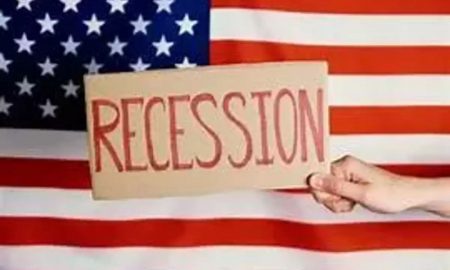
The Non-Conforming Loan May Be Just What You are Looking For!

 We’re here to speak about another breed of home loans – meet the non-conforming loan. This may be the loan you’re looking for if you want to purchase a property that isn’t actually eligible for government program-driven insurance. Of the many types of mortgages available to make your dream home yours, the one that is best for you is either the one that best suits you or the only one that you get approved for!
We’re here to speak about another breed of home loans – meet the non-conforming loan. This may be the loan you’re looking for if you want to purchase a property that isn’t actually eligible for government program-driven insurance. Of the many types of mortgages available to make your dream home yours, the one that is best for you is either the one that best suits you or the only one that you get approved for!
Conforming vs. Non-Conforming Loans
Mortgage loans fall into one of two categories — that is, conforming and non-conforming loans. The conventional loan that most people apply for that is offered by financial institutions and banks may actually be either one of these! Non-conforming loans go under the name of jumbo loans as well, and they are specifically for properties that government programs won’t insure. So, what happens is that private lenders put together packages with their own stipulated requirements. With conforming loans, the packages are put together by financial institutions and banks that are insured by government agencies. This is a basic difference, though these loans do vary in many other ways.
The Mechanics of A Non-Conforming Loan
Non-conforming loans deal with amounts far higher than those dealt with in conforming loans, and the documentation pertaining to the loan is far more extensive. There may even be a larger downpayment as well as higher credit scores in order to qualify – which isn’t surprising since you’re essentially applying for much more credit, of course. These feature a firm debt-to-income ratio, and you may have to have significant cash reserves on hand. Furthermore, the interest rates, fees, and closing costs may be higher than a conforming loan.
What to Expect From a Non-Conforming Loan
 Loan amounts covered under non-conforming loans can reach as high as over $700,000 in some parts of the US, and in some cases, even higher than that. In terms of documentation, it is, indeed, extensive, and it needs to be carried for several years. There are income tax returns, bank statements, pay stubs, appraisals of assets, and much more that is required for qualifying for a jumbo mortgage loan. The downpayment may begin at around 10%, but some lenders do ask for a higher minimum.
Loan amounts covered under non-conforming loans can reach as high as over $700,000 in some parts of the US, and in some cases, even higher than that. In terms of documentation, it is, indeed, extensive, and it needs to be carried for several years. There are income tax returns, bank statements, pay stubs, appraisals of assets, and much more that is required for qualifying for a jumbo mortgage loan. The downpayment may begin at around 10%, but some lenders do ask for a higher minimum.
Your credit score needs to be within the range of 700 to 750 (or higher), but understand that the lender may ask for any figure of their own since they are the ones who set up their requirements as per their discretion. You can also expect to see a debt-to-income ratio of up to 45%. This may actually be negotiated under specific circumstances.
The majority of lenders will expect you to have cash reserves to act as a safety net for losses in case of a foreclosure, considering the size of the loan. Each lender’s requirement of cash reserves varies but you can expect something approximately to one year’s worth of mortgage payments. Fortunately, when it comes to interest rates, lenders actually do try to be competitive so their interest rates are only slightly higher than that of loans of lesser value.
It can also be expected that the closing costs and fees of a non-conforming loan will be calculated as a percentage of the mortgage balance. Since seeing that the mortgage balance will be higher than a conforming loan, it is only reasonable that the closing costs and fees are higher. Unfortunately, you can expect additional closing costs like multiple appraisals.
The Benefits of Non-Conforming Loans
 In spite of everything that has been discussed, there are benefits to non-conforming loans over conforming loans. As mentioned, the loan limits are higher which is an attractive benefit. But even better is that you are still eligible even if you have declared bankruptcy which does not hold for a conforming loan. Also, jumbo mortgages are available on commercial property!
In spite of everything that has been discussed, there are benefits to non-conforming loans over conforming loans. As mentioned, the loan limits are higher which is an attractive benefit. But even better is that you are still eligible even if you have declared bankruptcy which does not hold for a conforming loan. Also, jumbo mortgages are available on commercial property!
There are certainly times when a conforming loan may be significantly more attractive — like if you are actually eligible and if the property you are purchasing is actually an eligible property. In this case, your downpayment will be lower (as low as 3%), and you may qualify with a lower credit score and get away with lower fees and closing costs. However, we all know that sometimes, the circumstances just aren’t right, and we don’t get the best deal. Thus, we need to seek alternatives – and the non-conforming loan may be the alternative you’ve been searching for!
More in Loans & Mortgages
-
`
Curious About Travis Kelce’s Net Worth? Here’s the Scoop!
Travis Kelce’s name echoes through NFL stadiums, synonymous with athletic prowess and electrifying plays. But beyond his touchdown celebrations and record-breaking...
June 10, 2024 -
`
Everything You Need to Know About an Assumable Mortgage
What is an Assumable Mortgage? Whether you are a buyer or a seller, understanding the concept of assumable mortgages can open...
June 6, 2024 -
`
Layoff vs. Fired – Understanding the Crucial Differences
When it comes to job loss, understanding the distinction between being layoff vs. fired is crucial. While both situations result in...
May 30, 2024 -
`
When Are Business Taxes Due 2024? Essential Dates and Deadlines
Tax deadlines can be daunting, but fear not! Let’s break down everything you need to know to stay on top of...
May 22, 2024 -
`
How Much Does Jeff Bezos Make Per Hour? It’s More Than You Think!
Jeff Bezos, a name synonymous with innovation and wealth, stands as one of the world’s richest individuals. While Bernard Arnault and...
May 16, 2024 -
`
What is Portfolio Investment Entity (PIE) and How Can it Benefit You?
In the intricate world of finance, individuals seek avenues to optimize their investments while minimizing risks. One such avenue gaining traction...
May 9, 2024 -
`
What is a Bank Statement? Understanding its Definitions, Benefits, and Prerequisites
Ever wondered where your money goes? A bank statement is like a financial report card, giving you a clear picture of...
April 30, 2024 -
`
Branded Content: A Genuine Way to Connect With Your Audience
Have you ever binge-watched a series on Netflix, only to later realize that the beverage everyone’s sipping on is that brand...
April 23, 2024 -
`
What Car Does Jeff Bezos Drive? Find Out Inside His Exclusive $20 Million Collection
Have you ever wondered what car does Jeff Bezos drive? This man’s tastes in vehicles are as expansive as his business...
April 17, 2024















You must be logged in to post a comment Login